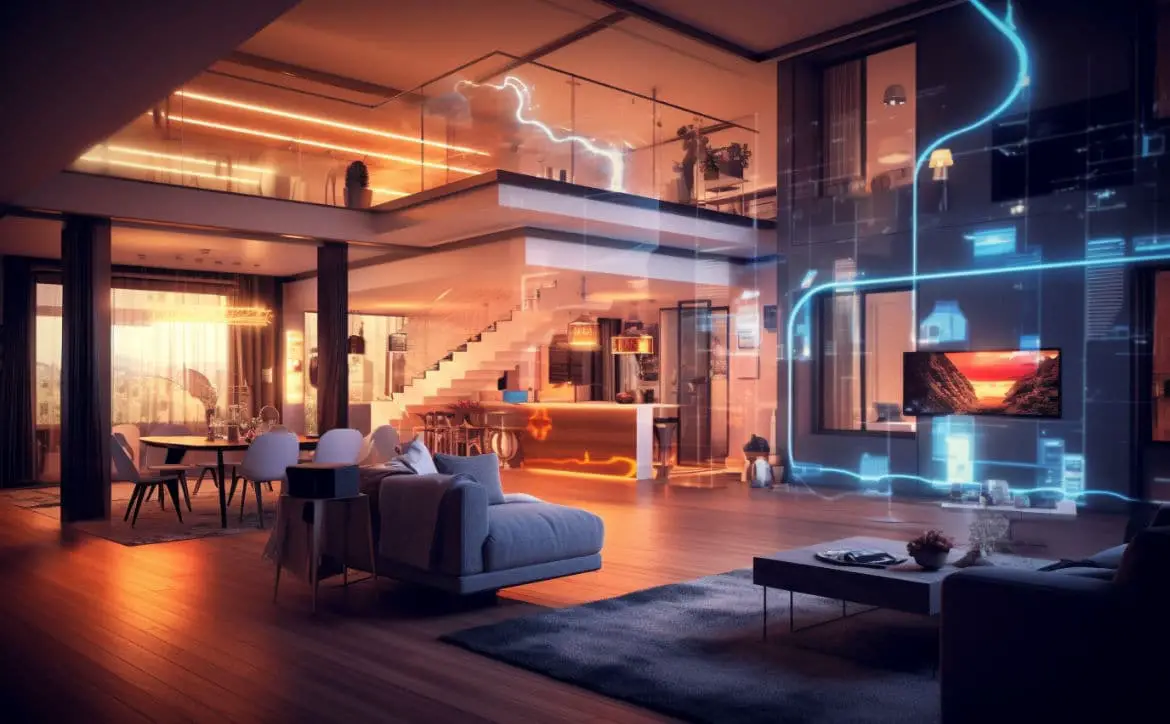The advent of smart home technology has revolutionized the way we interact with our living spaces. From voice-activated assistants to automated security systems, these advancements promise convenience, energy efficiency, and increased connectivity.
Estimated reading time: 5 minutes
However, it is essential to evaluate the potential downsides and concerns that accompany the widespread adoption of smart home technology. We extensively cover smart home technology here at Techaeris, but this isn’t for everyone. In this article, we will delve into the cons of smart home technology, shedding light on the issues that consumers need to consider before fully embracing this modern innovation.
Table of contents
Consider This: Smart Home Technology

Privacy and Data Security Risks
One of the most significant concerns surrounding smart home technology is privacy. As smart devices collect vast amounts of personal data, including audio, video, and usage patterns, there is an inherent risk of unauthorized access or misuse. Recent incidents have highlighted vulnerabilities, with reports of unauthorized parties gaining access to live camera feeds and personal information.
Furthermore, the integration of multiple devices within a smart home ecosystem creates an interconnected network that, if compromised, can expose sensitive data. The potential for data breaches raises valid concerns about surveillance, identity theft, and the exploitation of personal information. Users must be vigilant in understanding and managing the data security measures implemented by manufacturers and service providers.
Dependency on Internet Connectivity
Smart home technology relies heavily on a stable internet connection to function optimally. While this dependence offers unparalleled convenience, it also presents a significant drawback. In the event of an internet outage or disruption, the functionality of smart devices can be severely affected, potentially rendering them useless or limiting their capabilities. This can be particularly problematic during emergencies or when essential functions, such as security systems, are reliant on uninterrupted connectivity.
Complexity and Compatibility Challenges
The proliferation of smart home devices from various manufacturers often results in compatibility issues. Each device may require different software applications, leading to a fragmented user experience and a complicated setup process. Users may find themselves juggling multiple apps and struggling to integrate different devices seamlessly.
Moreover, frequent software updates and the introduction of new technologies may render older devices obsolete or incompatible, requiring costly upgrades. The rapidly evolving nature of the smart home market can make it challenging for consumers to keep up with the latest trends and ensure the compatibility of their existing devices.

Higher Costs and Potential Financial Burdens
Smart home technology, while promising efficiency and convenience, often comes with a higher price tag compared to traditional alternatives. The cost of purchasing and installing various smart devices, such as smart thermostats, lighting systems, and security cameras, can add up quickly. Additionally, maintaining and replacing these devices, as well as paying for associated subscription services, can result in a considerable financial burden.
Furthermore, as the number of smart devices increases in a home, so does the energy consumption required to power and maintain them. While smart devices often tout energy-saving features, the overall impact on utility bills may not be as significant as initially anticipated. It is crucial for consumers to weigh the long-term costs against the perceived benefits before committing to a fully smart home ecosystem.
Potential for System Malfunctions and Technical Glitches
Despite advancements in technology, smart home systems are not immune to malfunctions and technical glitches. Connectivity issues, software bugs, or hardware failures can disrupt the proper functioning of smart devices, causing inconvenience and frustration for users. In some cases, these malfunctions may require professional assistance to resolve, resulting in additional expenses and delays.
Terms and Conditions
Probably the most unappealing part of smart home technology is the terms, conditions, and agreements you will end up signing when signing up. Nearly all smart home technology makers have some sort of ToS (terms of service) in place, and we are willing to bet that the majority of users do not read these. Giving a company control of your smart home technology leads to incidents such as the one where Amazon locked a man out of his home, accusing him of racism. In the end, you’ll have to remember that you do not have full control of the smart home technology products you purchase; you are merely allowed to use them.
Conclusion
While smart home technology offers an array of benefits, it is crucial to recognize the potential cons and challenges that accompany its adoption. Privacy and data security risks, dependency on internet connectivity, complexity and compatibility challenges, higher costs, the potential for system malfunctions, and ToS contracts are all factors that users should carefully consider. As smart home technology continues to evolve, it is essential for manufacturers, services.
What do you think of smart home technology? Please share your thoughts on any of the social media pages listed below. You can also comment on our MeWe page by joining the MeWe social network. And subscribe to our RUMBLE channel for more trailers and tech videos.
In some of our articles and especially in our reviews, you will find Amazon or other affiliate links. As Amazon Associates, we earn from qualifying purchases. Any other purchases you make through these links often result in a small amount being earned for the site and/or our writers. Techaeris often covers brand press releases. Doing this does not constitute an endorsement of any product or service by Techaeris. We provide the press release information for our audience to be informed and make their own decision on a purchase or not. Only our reviews are an endorsement or lack thereof. For more information, you can read our full disclaimer.
Last Updated on March 13, 2024.










